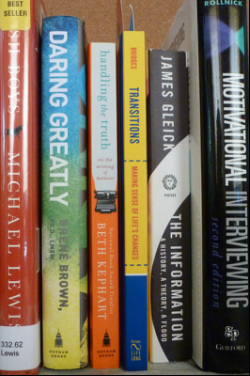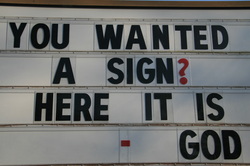What I'm Writing |
|
6/24/2014 0 Comments What does the Fox tell us? Let me ask you: “what does the fox say?” Here’s my guess: it says we are slouching ever closer to that Gomorrah known as the one world culture. You’ve heard, watched, or been subjected to that internet meme: “What does the Fox Say?” (Click over; if it’s new. I’ll wait.) And, now, with that catchy little rhyme and those strange masks in your head. Consider the fact for a certain portion of last week, the first week of June 2014, the Wikipedia page for that song was the top trending story for the entire planet. Now, here’s the point: what does that mean? This is where the world needs not just skill, but creative inspiration to help make meaning from that little bit of data. Making meaning means taking a contextually specific stand about something that matters to you. Or, said simpler, it means looking at your life and your world and making a judgment call about how something matches or doesn’t. So, for many of us, the Fox doesn’t mean all that much or even really matter all that much. However, and here’s my point, the difference in this new post-post world is we have the opportunity to discover the context we thought mattered – culture, history, religion – matters differently. These holy three used to define people’s worlds, but no longer. People today need to develop their own skill at making meaning, divining how some new bit of data, connects with the context of their lives, and leads to new understanding. It could almost be a math equation: Internet fox + my life (context) = meaning (understanding) Making religious meaning used to be the sole or largely so, responsibility of those in traditional roles of church leadership, but no longer. As people, learn to navigate the informational tidal wave, they must either learn to swim or be washed away. The challenge people of faith face is how to make meaning using some of the traditional markers of faith, which can feel very confining in a world so awash in newness. Teaching people the skills of meaning is one of the great challenges all of the world’s faith traditions face. The Christian response is that each life has meaning, because of the shared meaning found in Jesus the Christ. Said, another way, each life matters, because God cares enough to love. Today’s challenge is not getting information into the hands of the faithful, but rather to help people of faith learn to make meaning within the various contexts that they find their lives. So, what do you think? How do you make meaning in this world today?
0 Comments
 This is part of an occasional series on practices, which might be helpful for your spiritual path. One of the keys to living a simpler life is finding the right balance in how you spend your time. Here’s the simplest priority setting process I know, which I have adapted from Richard Foster’s Freedom of Simplicity. Three Marker Test
Foster recommends you ask a few questions before you cut. 1. What do I want? (Sometimes, asking, why do I want that?) 2. What am I longing for? 3. How is God inviting me to say yes to this season of my life? I’d add a couple more. a. What would you do if you really had the freedom to follow your dreams? b. If you’re a bit older, how might your younger self have imagined you today? Each time I stop and consider my time and the way it is used, I find out something new about myself and who I am becoming. I often use those same big pieces of paper to create timelines, looking backwards at the year that was. It always helps me focus. Obviously, I’ve just suggested you take your schedule and make some radical changes. Many of us, probably have things in our schedule, which we don’t want to do, but still need to do. The point of the little exercise is less to end up with a perfect schedule and more to move towards discovering what matters to you and prioritizing that. Finally a quote from Foster: “If your season of life has changed; you might experiment with radical change.” What might radical change look like for you?  I’ve recently done some purging of books, including many of the wonderful – tongue in cheek – books I had the joy of purchasing and reading in seminary. Many of these books, and their authors, meant well, but they no longer describe the post-post-modern, Great Recession, ever changing world as I see it out my window. Because, let’s face it, most of the books you read, aren’t cutting it in today’s church. And, who needs more grow the church books? I need books with real ideas, which actually work. 1. Transitions Because, every church/pastor/denomination is going through one right now. And, having a story, or way to understand all that movement, really, really helps. This is both an administration book and a pastoral care book. 2. Daring Greatly Brown’s book is not theology, but it is the best practical theology book I have ever read. Her understanding of shame, which I read as sin, is second to none. Do yourself a favor and see what theology can be, when it is informed by social science and not dogma. 3. The Information: a history, a theory, a flood or Flash Boys: A Wall Street Revolt These two books are tied, in my mind, because they are both describing the same sorts of phenomena: big data, big money, and the need to make some sense of it all. Big data could easily become a stand in for God; our faith needs an answer. Glieck’s book is like Saint Thomas Aquinas. Flash Boys is more Martin Luther. 4. Motivational Interviewing Here is the best tool for fostering and fermenting change in established congregations. Once you get past the talk about alcohol and drugs, you find a deep understanding of how to help people change. Should be required reading for all denominational officials. 5. Handling the Truth Here is your preaching text. Sermons from on high no longer work. Meaning, we must take our stand in the midst of our own broken and battered lives. That’s handling the truth. Kephart’s book is like a workshop and seminar all rolled into one. There you have it: vision, pastoral care, ethics, theology, and preaching. I believe these are some of the ideas that a local church revival will be built upon. What would you add? 6/12/2014 1 Comment Google trends/Ministerial Realities Nothing puts more perspective on all the time spent on sermons, like looking at a Thursday afternoon collection of trends on Google/Trends. (http://tinyurl.com/kjnwka) Don’t believe me? Go check for yourself. Compare, something like, “sermon” or “prayer” or “church,” with someone like Justin Bieber. “Sermon” doesn’t come out so good; although for good or ill “church” does seem to have a longer forecast than a certain singer. (If you haven’t played around with this data yourself; I would encourage you to. Particularly, if you’re interested in finding that heavenly note of relevancy, which is often elusive in many sermons, I’ve heard over the years.) My point: back in my parish church days I spent hours writing sermons that, it seems, the world is not really looking to hear. If Google is a representation of our great cultural imagination, then sermons are not going to carry the day. However, I do suspect that hidden in this ocean of data, is also something very profound about what it means to be human. Humanity is incredibly complex, and, increasingly we have the data to show that complexity. Preaching into this new world takes guts, but also it takes fresh eyes to see what is happening in the world today. Google has offered us preachers a way to see the world, the whole global world, with new eyes. Here’s my take away: I believe strongly that learning to read and understand information like this, is essential for having and finding meaningful things to say to this brave new world. People drown in data and they need people of faith and calling to help them learn to swim. So, dear reader, how has this data changed your view? What new insights have you gained?  There’s a TED talk about the teddy bear, which argues that Teddy Roosevelt’s famous friend changed the way we understand the natural world. (Check it out here: http://tinyurl.com/nq5rur8.) Teddy, the prez, changed a scary bear into something cute. I buy it, because I think it makes sense. Now, apply that thinking to church. Local churches need something like the Teddy Bear to survive. In the background, another bit of marketing , this from the town of Leominster, Mass. Leominster is a central Massachusetts town, which I’ve driven through a couple times. I briefly lived in neighboring Gardner, which has lately fallen on some hard economic times. Back in 1939, some film makers came to Leominster and shot a short video, which was sort of an early recruitment video for the then thriving industrial town. For our purposes, this little video, showed many “houses of worship” and all the people that were flocking to them. Tucked into the back of some of those shots: the iconic church sign complete with white letters, worship times, and witty topic. Not obviously this sign, a little risqué for 1939, but still very much recognizable. Now, I ask you, dear reader, what else has stayed largely the same since that video was shot? Not the factories. Those have mostly closed. Not the stores. Big boxes, hyper abundance, and internet shopping still had a ways to go. Not even the people. Families, neighborhoods, and nations are all changing. I’d take the TED talk speaker’s argument one step forward and say that the local church as a cultural institution is now heading towards extinction, at least in my little corner of the Northeast United States. Now, the Church, big C, will survive this little cultural moment as it has for the past 2,000 years, by adapting, shifting locations, and finding the Jesus people where they are. I’m talking about the local church, the neighborhood outpost of the established church in America, those might be fast fading away. I say: we need a symbol to help save this institution. Any thoughts on what that might be? I’d love to hear your thoughts in the comments below. |
Archives
June 2020
CategoriesAll Big Blue Notebook Blogging Church History Data Driven Emergent In Church This Morning Internet Marketing Simple Living Simplicity Spiritual Discipline |
 RSS Feed
RSS Feed
